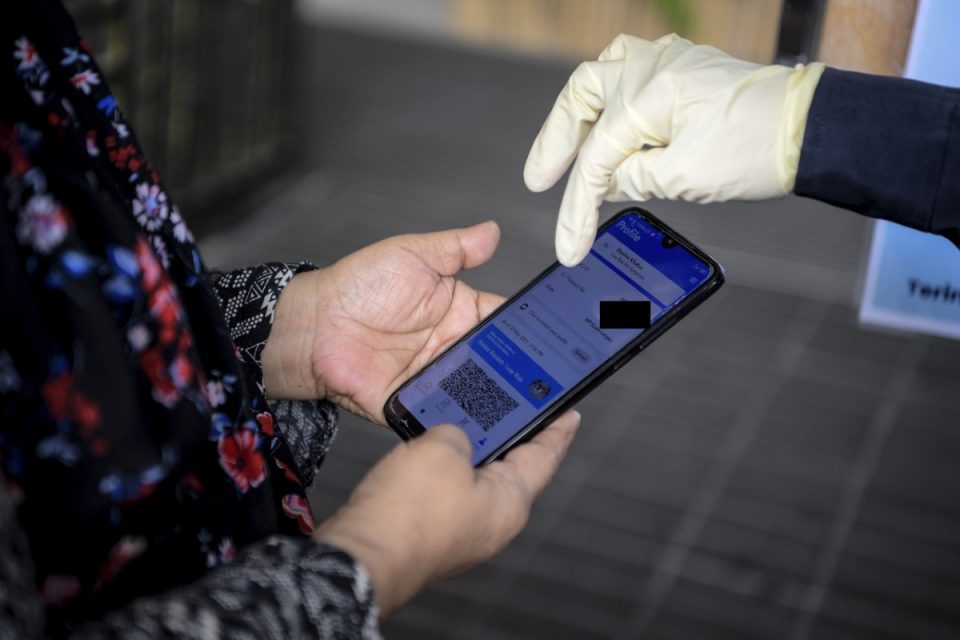PUTRAJAYA, April 27 — Scanning of the QR code using the MySejahtera application, which is the standard operating procedure (SOP) to check in at premises, is no longer mandatory with effect from May 1, announced Health Minister Khairy Jamaluddin today.
However, he said the management of the premises concerned should check the risk status of individuals entering the premises through their respective MySejahtera app to ensure those with “High Risk” status, which is a positive case of Covid-19, and those placed under Home Surveillance Order (HSO) were prevented from entering.
Individuals are allowed to enter any premises regardless of their vaccination status, he told a press conference to announce the relaxation of the Covid-19 control and prevention measures in line with the country now in the transition to the endemic phase.
“Those who are positive for Covid-19, despite having complete vaccination status are still not allowed to enter the premises.
“They include individuals in the HSO period, as well as travellers without complete vaccinations who just arrived in Malaysia,” he said and advised the public to activate their MySJ Trace function for contact detection.
Khairy said the MySejahtera application was still important to be used, among others, for the purpose of reporting the results of Covid-19 detection test and HSO instruction, as well as assisting the Health Ministry (MOH) in the prevention and control of Covid-19.
He said the HotspotTracker function, previously used to track the hotspot area of Covid-19 cases, will now be changed to Infectious Disease Tracker to see the hotspot area of other diseases such as rabies (mad dog disease), measles, hand, foot & mouth disease (HFMD) and dengue.
“This area will be determined based on the number of active cases in the consumer area for each infectious disease,” he added.
He said the proactive measures were taken to avoid the public from visiting areas with a high risk of infectious disease transmission, especially when with those at high risk and with comorbidities.
“I also encourage community associations to use this function to assist in controlling the spread of infectious diseases in their respective residential areas by implementing various activities such as gotong-royong to clean their housing areas and villages,” he said.
— Bernama





